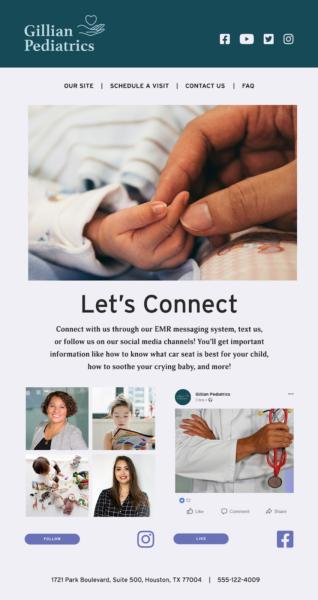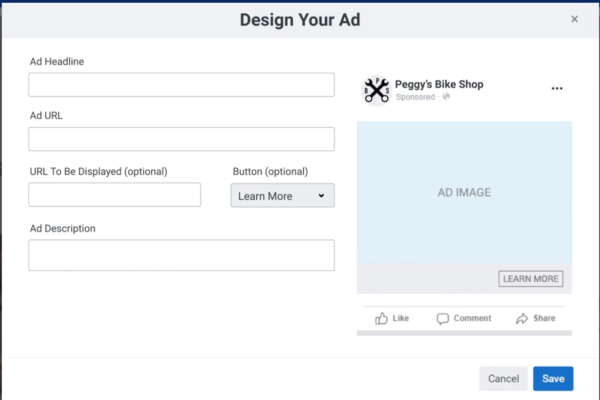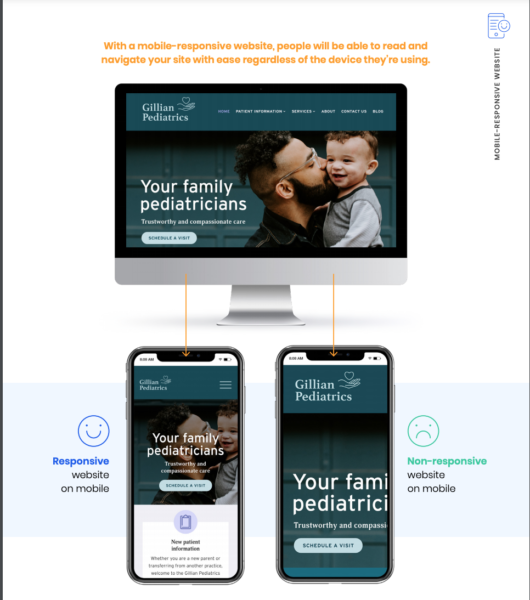
Being a good therapist is all about helping people through tough times, and times have been tough lately.
Behavioral health centers have scheduled record numbers of appointments, and calls to mental health hotlines have spiked. Between March and May of 2020, calls to the Substance Abuse and Mental Health Services Administration’s emotional distress hotline went up by 1,000%.
Of course, as a therapist, you want to help in this environment. But how do you market your services without seeming like you’re profiting off people’s pain? Shouldn’t there be a way for therapists to say, “Hey, I’m out here and I care.”?
We make it easy to build loyalty with patients and clients, drive referrals, and grow your center.
That’s what sensitive marketing for therapists is all about. It means offering resources to people who need them and building connections so that when someone is ready for therapy, they know how to reach you.
No matter what kind of therapist you are — behavioral health, speech, physical, etc. — in this article, you’ll learn how to accomplish these goals using email, social media, educational content, and professional listing services.
Connect through email
In your therapy practice, you work hard to make sure clients know you care about them. Email marketing helps you reinforce that message when clients aren’t in your office.
Just by sending a regular newsletter to your email list, you can stay in touch and share relevant mental health tips and resources. It’s easy to create beautiful newsletters using Constant Contact’s user-friendly templates. You can even schedule your messages to go out at designated times — ideally at least once a month.
Make sure every new client and potential client has a chance to sign up for your list, and remember to send every new subscriber two welcome emails: The first goes out immediately after the person signs up, and the second goes out a few days later. That second email offers more opportunities to connect and reminds the recipient that your emails are valuable, helpful, and relevant.

Email messages help the subscriber feel connected while also providing accessible resources. It’s best to set your welcome emails up using an automated email tool so every subscriber receives a welcome, no matter how busy you get.
Reach out on social media
Over the past decade and a half, social media use has steadily climbed across all age groups. Today, 72% of the general public uses at least one social media site. If you’re looking to stay in touch with current and past clients and find people who are looking for help, social media marketing is a great avenue.
It’s easy for social media to seem like too much for marketing counseling services, but it doesn’t have to be. First of all, don’t feel like you have to be everywhere at once. Facebook is a great platform to start on because it has the most active users and is extremely versatile.
Through your business’s social media page, you can share free updates about your practice, including:
- Services you offer
- New policies and procedures
- Information about your specialties
- Mental health resources
Your business page lets you connect with people who already follow you. To reach the many people who are looking for help but don’t know you yet, run a couple of Facebook ads.
A therapy advertisement on Facebook is affordable and easy to create. Just tell the platform who you want to reach — people in your geographic area, for example — and set a budget and schedule. Constant Contact’s lead ads tool will show you exactly how to do it:

You can even include a sign-up link to your newsletter, so people who aren’t ready to become clients can still stay in touch.
Touch Up Your Website
Before a potential new client gets in touch with you, they’ll probably check to see if you have a website. If you don’t, they might move on to the next name on their list.
That’s just how things work today — if a business isn’t online, people get suspicious. The better your website is, the more trust you’ll build with potential clients and the more willing people will be to contact you.
First and foremost, make sure your website looks great on smartphones. Mobile traffic now accounts for 56% of all search traffic, and your website needs to be easy to navigate if you want those mobile visitors to stick around. Constant Contact’s site builder optimizes all websites for mobile, so if you start there you won’t have to worry about a thing.

Your website should touch on everything a new client might want to know about you. Make sure your contact information is easy to find and include information about:
- The mental health concerns you treat
- Your qualifications and experience
- The process of becoming a client
- Financial expectations
If you really want to stand out, add a blog page to your site. As you’ll see in the next section, blogging lets you highlight your expertise and present yourself as an authority in your field.
Offer resources via content
In March of 2020, searches for terms like “panic” and “anxiety” spiked as the coronavirus pandemic first hit the United States. Searches for depression were high through the spring, and the holidays brought more mini spikes. Each of these searches represents someone who needs help.
A search like “anxiety management” or “depression help” brings up a list of results from a variety of sources. Each of those sources is content marketing for therapists — a blog post or an article that offers suggestions and resources. People click on those resources and often continue to explore the host site.
By creating content that’s relevant to your practice, you can offer your support to people who need it. As people find you, you can earn their trust and encourage them to join your email list. They may eventually choose you as their therapist.
Manage your online reviews
Did you know that, according to Software Advice, 90% of healthcare consumers use online reviews to evaluate providers? You can bet that people also check reviews for therapists they hear about online.
People find therapist reviews on sites like Google and Yelp, as well as on specific therapist and healthcare provider review sites like GoodTherapy and Healthgrades. Fill out your listings on these sites and see what people are saying about you.
Respond to reviews whenever you can. An estimated 97% of people who read reviews also read a business’s response.
Thank people who review you highly. If you receive negative reviews, acknowledge the individual’s concerns and apologize for their experience. If it’s appropriate, offer to get in touch offline and resolve the issue. Meanwhile, people who visit the site will see that you care about your clients’ experiences.
Getting Started
Now that you’ve learned how accessible tools like email, social media, and blogs support marketing for therapists, you can take your first step toward creating or fast-tracking your strategy. You’ll find more inspiration in The Download, Constant Contact’s digital marketing guide for healthcare providers.
Get started today, by creating a newsletter or designing your website. Whatever you do, it might be the first step to getting someone the help they need.




